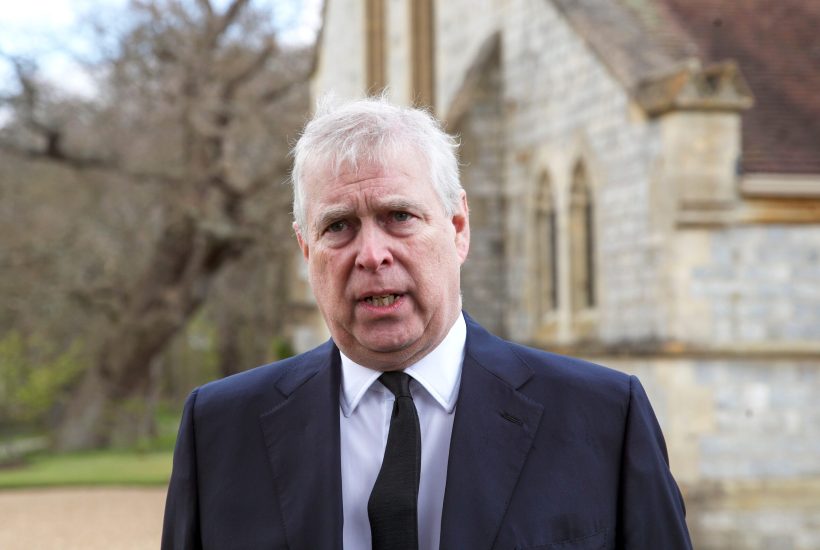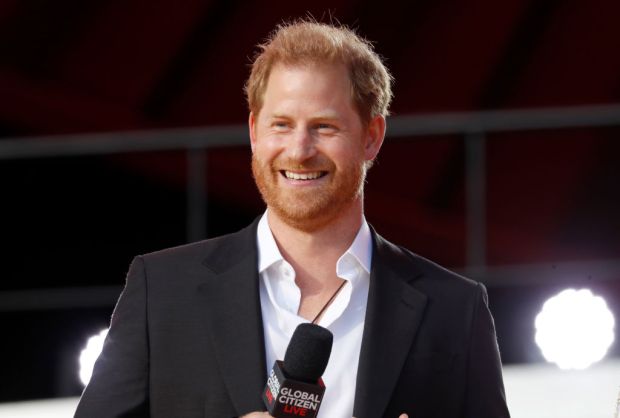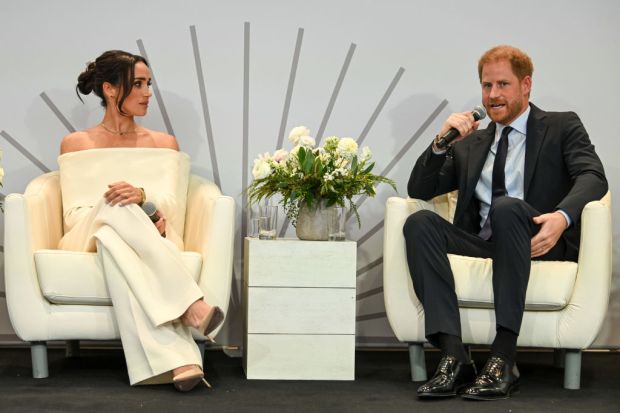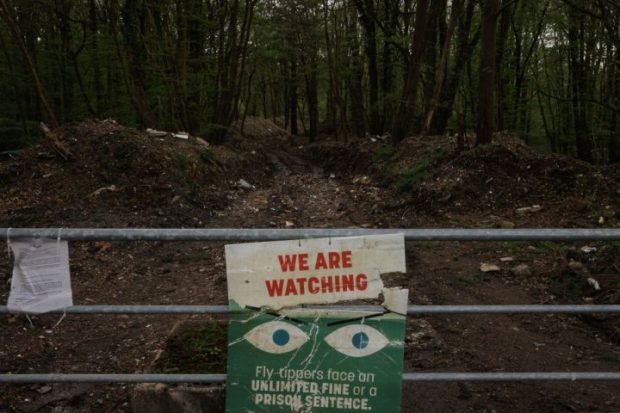My late grandfather, the editor and columnist John Junor, nurtured fondly throughout his career the conviction that nobody could be sued for asking a question. It was in this spirit that he approached in his weekly column the story of a schoolteacher who had been acquitted for the third time in his career of sexually molesting young boys in his care. He did not for a moment doubt the man’s innocence, JJ wrote, but he wondered: would it not be prudent for this man to take up a line of work ‘that carries a less high risk of false accusation’?
This formulation came into my mind as I read the latest news on the Duke of York’s fight against a lawsuit brought in the US by Virginia Roberts Giuffre, who claims that she was trafficked as a teenager by Jeffrey Epstein and that Epstein’s friend Prince Andrew sexually assaulted her while she was 17 years old. Prince Andrew denies these claims categorically, and says he has no memory of so much as even meeting his accuser.
The reason, I think, that JJ’s formulation sprang to mind was that it indicated – as he acknowledged in his slightly unhelpful way – the court of public opinion doesn’t always map onto the findings of the actual courts. And in the same way, here, you find yourself wanting to suggest: wouldn’t the Duke be prudent to adopt a legal strategy that made it look less like he was desperately wriggling to avoid giving evidence under oath?
It’s quite right, of course, that Prince Andrew should be regarded as innocent until proven guilty. But that is a cliché of criminal law. This is, at least at present, a civil case. The Duke is facing no criminal charges. His guilt or innocence in the matter is highly unlikely to be established to that level of certainty. So he’s fighting a public relations battle rather than just a legal one – and that means that how it looks is as important as how it plays out in court. And how it looks is almost comically awful.
Let’s start from the premise that Prince Andrew is entirely innocent of assaulting the plaintiff. There are a few things that you might expect him to do – not just so that justice is done, but so that it is seen to be done. You might expect this innocent man to do as his team briefed newspapers they intended to: to use the platform of the case to ‘come out fighting’ and refute the accusations ‘point by point, claim by claim’.
Instead – and for all I know this is a brilliant legal strategy, but it stinks as public relations – he and his lawyers seem to have been doing everything they can to avoid taking the issue directly on its merits, choosing rather to weasel around with technicalities.
Even back when the spotlight was on the criminal case against Epstein and his associates, he seemed to be ducking and diving. He issued a statement declaring without qualification: ‘I am willing to help any appropriate law enforcement agency with their investigations.’ Fully two months later, the US Attorney in Manhattan complained publicly that despite repeated requests Andrew had offered ‘zero cooperation’.
When Ms Roberts Giuffre’s legal team tried to serve him formal papers, there was what was described as ‘a game of hide-and-seek behind palace walls’ – where the Duke’s defence seemed to consist in maintaining that the papers hadn’t been served properly. They had to go by courier to Windsor, by email, by Royal Mail and even to the offices of lawyers who had represented him in the past before the Duke’s team caved to the inevitable and admitted they’d received them. This was essentially the strategy adopted by the Dursley family, under siege by letters from Hogwarts, in the first Harry Potter book – and it met with just the same success.
His team have chosen to conduct their defence not in court but in a stagy Newsnight interview and a series of off-the-record briefings. The former offered bizarre sallies about his inability to sweat – a medical condition that you’d think would have left some sort of paper-trail if diagnosed by an actual doctor – and his visits to Pizza Express. His lawyers have smeared his accuser as a gold-digger and someone who herself tried to recruit ‘slutty girls’ for Epstein.
Meanwhile ‘friends’ speculated that a photograph of him with his arm around the waist of the teenager he claims never to have met must have been faked because his fingers are chubbier than they appear there.
Last week they were trying to have the case thrown out because they argued that the plaintiff was domiciled in Australia. This week they’re hoping that the sealed deal that Ms Roberts Giuffre made with Jeffrey Epstein will contain a phrase that indicates ‘a general release of all claims against him and numerous other individuals and entities’; ie preventing her from carrying the case forward.
That would be immunity from prosecution, of a sort – but maybe not the sort that it’s in his (or the royal family’s) best interests to be seen to require. Paying Ms Giuffre off in an out-of-court settlement would be a more expensive way of achieving the same reputation-trashing result.
Let us imagine he has, so far, been badly advised. What would really turn the tide, I think, is if – even should the unsealed deal contain that clause – he determined to go ahead as originally advertised: ‘point by point, claim by claim’. This innocent man could magnanimously waive the technical protection a long ago deal between an abuse victim and a child sex-trafficker offered him. He could declare: it’s not about getting off the hook; it’s about clearing my name in open court, in the interests of my self-respect and the reputation of the monarchy. Perhaps his mum could have a word.
Got something to add? Join the discussion and comment below.
Get 10 issues for just $10
Subscribe to The Spectator Australia today for the next 10 magazine issues, plus full online access, for just $10.




















Comments
Don't miss out
Join the conversation with other Spectator Australia readers. Subscribe to leave a comment.
SUBSCRIBEAlready a subscriber? Log in